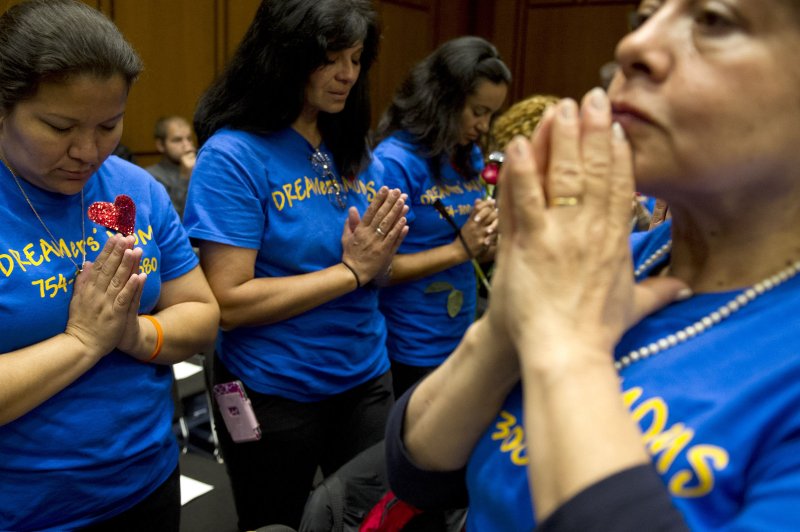WASHINGTON, May 5 (UPI) -- The Supreme Court cleared the path for explicitly religious prayers to be given during government activity, so long as the government was not seen as coercing citizens into participation.
In a 5-4 split decision, the high court's conservative wing sided with the practices of Greece, a town of 94,000 residents outside Rochester, N.Y., which opens its monthly board meetings to a prayer delivered by a "chaplain of the month."
Co-plaintiffs Linda Stephens and Susan Galloway sued the town, saying the practice had been heavily Christian in nature over the years and the town had repeatedly ignored requests to modify or change the policy. They argued the civic prayers violated the First Amendment's Establishment Clause, which states: "Congress shall make no law respecting an establishment of religion, or prohibiting the free exercise thereof."
The town said it sought to address the women's concerns by inviting a broader range of voices, including a Jewish man, a Wiccan priestess, and a member of the Baha'i faith to offer words at the sessions, inviting a diverse group of speakers without reviewing their remarks ahead of time.
A 2nd Circuit Court of Appeals ruling went against the town, finding the policy "virtually ensured a Christian viewpoint" and violated the Establishment Clause.
But the highest court disagreed, with Justice Anthony Kennedy writing for a plurality that included Chief Justice John Roberts and Justice Samuel Alito, saying the town's policy failed a three-part "coercion" test. Coercion, he wrote, would involve the town ordering the public to join in the prayer, criticizing those who disagreed with the prayer or declined to participate, or made policy decisions based on a citizen's participation in the prayer.
Justice Clarence Thomas, joined by Justice Antonin Scalia, wrote a concurring opinion that argued the coercion test need only find the government actually forced people to become members of the faith, attending services or paying taxes that supported religious institutions.
Writing for the dissent, Justice Elena Kagan said the town made little effort to be inclusive, and the ruling could force prayers explicitly promoting a single faith in other public venues such as trials, polling places or naturalization ceremonies. Her opinion was joined by Justices Stephen Breyer, Ruth Bader Ginsburg and Sonia Sotomayor.
Town of Greece v. Galloway















